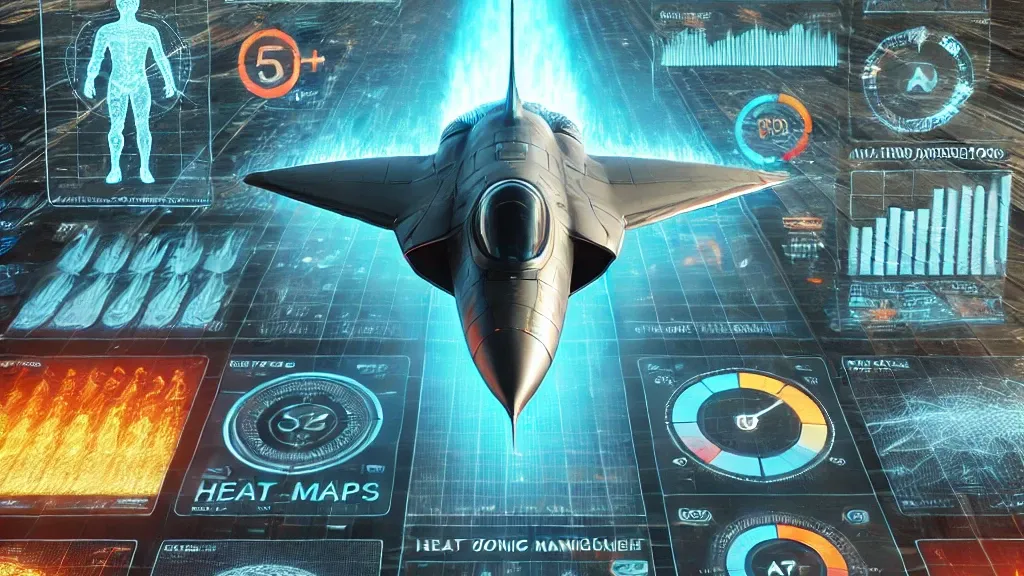The integration of AI in aerospace mission automation is transforming the landscape of space exploration. From optimizing mission planning to enhancing onboard systems, AI is playing a pivotal role in advancing aerospace technology. This article delves into how AI is being harnessed to automate and improve various facets of aerospace missions.

What is AI in Aerospace Mission Automation?
AI in aerospace mission automation involves the application of artificial intelligence technologies to streamline and enhance the processes involved in space missions. This includes mission planning, navigation, spacecraft control, and data analysis. The goal is to increase efficiency, reduce human error, and enable more complex missions.
The Role of AI in Space Mission Planning
AI algorithms are crucial in planning missions by analyzing vast amounts of data to create optimal flight paths and schedules. They help in predicting potential risks and creating contingency plans, ensuring missions are well-prepared for unforeseen challenges.
Enhancing Navigation and Control
AI systems improve navigation by providing real-time data analysis and decision-making capabilities. This is particularly important for long-duration missions where real-time communication with Earth may not be possible.
Optimizing Spacecraft Systems
AI enhances spacecraft systems by automating routine tasks and monitoring the health of onboard systems. This allows astronauts to focus on more critical tasks and reduces the likelihood of system failures.
AI in Data Analysis and Prediction
Data analysis is a vital component of space missions, and AI excels in processing large datasets quickly and accurately. AI models can predict weather patterns, solar activity, and other environmental factors that might impact a mission.
AI and Satellite Operations
AI technologies are increasingly used in satellite operations for tasks such as image analysis, anomaly detection, and resource allocation. This not only improves operational efficiency but also enhances the quality of data collected.
Challenges and Considerations
While the benefits of AI in aerospace are substantial, challenges such as data security, system reliability, and ethical considerations must be addressed. Ensuring the robustness and safety of AI systems is critical for the success of aerospace missions.
Data Security
Data security is a significant concern as AI systems handle sensitive information. Implementing robust security measures is essential to protect data from cyber threats.
System Reliability
AI systems must be highly reliable, as failures can have catastrophic consequences in aerospace operations. Rigorous testing and validation are crucial to ensure system robustness.
The Future of AI in Aerospace
The future of AI in aerospace is promising, with advancements in machine learning and AI technologies paving the way for more autonomous and efficient space missions. As AI continues to evolve, its applications in aerospace will expand, leading to more innovative and successful missions.
Potential Innovations
Future innovations may include fully autonomous spacecraft, advanced AI-driven space exploration tools, and enhanced human-robot collaboration in space missions. These advancements will further revolutionize the aerospace industry.
Conclusion
The integration of AI in aerospace mission automation is a game-changer for the industry. By enhancing mission planning, navigation, system optimization, and data analysis, AI is helping to overcome some of the most significant challenges in space exploration. As we look to the future, AI will undoubtedly play an even more critical role in advancing aerospace technology and expanding our understanding of the universe.

FAQs
Q1: How does AI improve navigation in space missions?
A1: AI improves navigation by providing real-time data analysis and decision-making capabilities, which is crucial for long-duration missions where communication with Earth may be delayed.
Q2: What are the challenges of using AI in aerospace?
A2: Challenges include ensuring data security, system reliability, and addressing ethical considerations related to autonomous decision-making.
Q3: What is the future of AI in aerospace?
A3: The future of AI in aerospace includes advancements in machine learning and AI technologies, leading to more autonomous and efficient space missions.
For more information on how AI is transforming the aerospace industry, visit Devoteam. For additional insights, explore our detailed articles on Spacecraft Trajectory and Weight Distribution Analysis.

